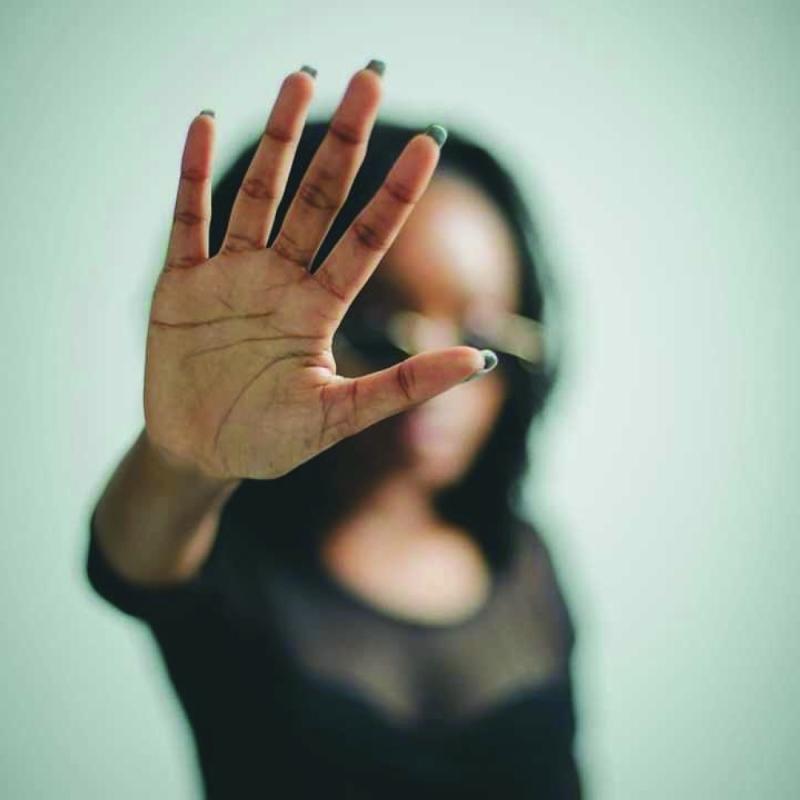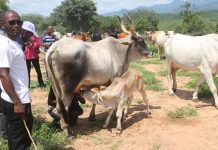Africa-Press – Botswana. Ending violence against women and girls remains a hurdle as the duo continues to experience physical or sexual violence, mostly perpetrated by intimate partners.
Effective responses to eliminate Gender-Based Violence (GBV) in Botswana remain a challenge as most prevalent human rights violation taking place more often and dozens of women continue to lose their lives at the hands of their lover.
These human rights violations have short up and long-term physical, sexual, and mental consequences for women and girls that can be devastating including death. The violations also have the possibility of negatively affecting women’s general well being and prevents them from fully participating in society.
Conditions that were created by the COVID-19 pandemic including lockdowns led to an alarming spike in domestic violence as women did not have anywhere to escape from their abusers. Some family members demonstrated behaviours that their close family members were not aware of.
Then, a sexual assault case that left the whole country reeling in shock was an incident in which a 101-year-old man of Bobonong village was charged with raping his grandchild who was a Standard Six pupil.
Quizzed on this matter, the police revealed to be continuing to record disturbing cases in which women and children are abused, seriously assaulted and even killed by their male partners, relatives and acquaintances.
According to the police, this violence is depicted in crimes such as aggravated assaults, threat to kill, murder, rape and defilement.
The police further revealed that cases of defilement in particular have continued to increase hence the police prioritising the tackling of these crimes in its policing agenda.
The director of gender and child protection unit, under the Botswana Police Service (BPS), senior assistant commissioner, Goitseone Ngono said they continue to record disturbing cases in which women and girls are abused and in some instances killed by their male partners and relatives.
Ngono revealed that the cases increased immensely following the outbreak of COVID-19 in the country back in March 2020 and the numbers might have been higher because some victims could not go out to report similar incidents due to lockdown restrictions.
Moreover, she stated that lockdown restrictions had also halted efforts that were put in place to fight the scourge. She, however, stated that forced by the disturbing cases, in 2021 the police established a gender and child protection unit so as to provide support in the investigation of GBV related offences, offences involving children and human trafficking.
“This unit has offices in all police stations across the country whom their responsibility is to receive GBV related reports referred to them, do the initial assessment, crisis intervention as well as referral to other stakeholders such as health and social protection among other,” Ngono said.
She said through this unit, the police managed to improve response to GBV and child related reports, reduced prevalence of crime against children and established a child friendly policing environment.
She further revealed that in 2021 they recorded 24,432 GBV cases with 38 of the victims aged below five years and 23,344 victims aged above 18. Ngono added that then 2,111 rape cases were recorded.
“Moreover, 273 murder cases, 16,607 assault common cases, 6,650 of assault occasioning and assault bodily harm; 1,817 cases of unlawful wounding and 970 cases of threat to kill,” she said.
Ngono said females continue to bear the brunt of GBV although males are also affected as victims of GBV.
She further revealed that the most prevalent district is No. 13 police district with most of the cases recorded from Mogoditshane, Gaborone West, Naledi and Ramotswa followed by No. 11 district where most of the cases were reported in Molepolole, Letlhakeng, Sojwe and Takatokwane.
Another area of concern according to Ngono is No. 2 district of which most cases were recorded in Serowe, Palapye, Serule and Maunatlala.
She said as a response to these cases that escalated during lockdowns, the BPS improved accessibility and response to GBV reports by introducing a toll free number that operates 24 hours so that people can report violence at any time.
“The establishment of this unit is also another police’s response to tackle GBV reports in an effort to curb them. Currently we have been intensifying community outreach, sensitising the public about GBV and encouraging them to report these cases,” Ngono said.
For More News And Analysis About Botswana Follow Africa-Press






